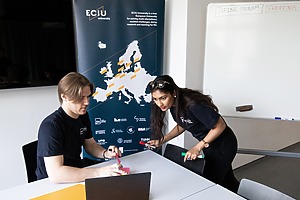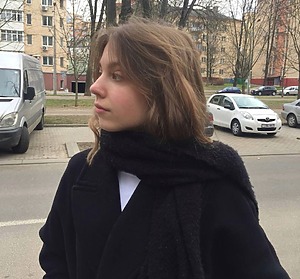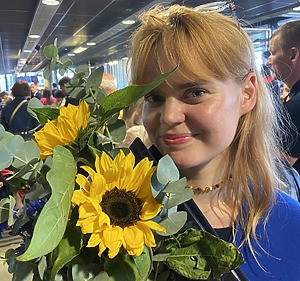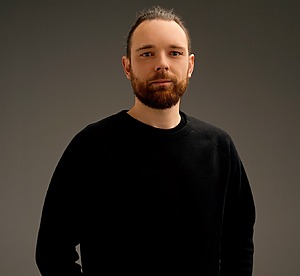In 2022, about 188,000 foreign residents lived in Lithuania, mostly from Ukraine. Immigrant children in Lithuania often have language barriers at school, which lowers their satisfaction with education and life. International teams of ECIU University students answered the Kaunas IN Agency challenge by proposing unique solutions for immigrant children’s integration.
The desire to help immigrant school children facing various integration problems led Yakimovich and her colleague from the Faculty of Mathematics and Natural Sciences of KTU, Gintarė Gabrielė Gabšytė, who is studying Material Physics and Nanotechnologies, to join the challenge proposed by Kaunas IN Agency: Capacity building tools enabling integration of immigrant and re-immigrant children into schools.
Suggestions for communities
The challenge set by Kaunas IN Agency created an opportunity for students to help solve real problems in their surroundings.
“The measures proposed are practical and implementable, which makes them different from other general or theoretical solutions. The booklet created by the students can be used by teachers in their daily activities, which further contributes to the implementation of solutions to the problem,” says Gytautas Kulakauskas, Project Manager of the Investment Environment of the Business Division of Kaunas IN.
The students who have contributed to the challenge hope that these guidelines will help immigrant children to adapt more easily into Lithuanian schools and to develop their skills without losing sight of their culture and identity.
“While developing the guidelines, we tried to involve other pupils, teachers, the whole school community and their parents/guardians. We put a lot of emphasis on visual information, as visual content helps people to learn the language faster and get involved in classroom activities. We also suggested that schools organise events where parents and teachers can learn about different cultures,” says Yakimovich.
The students also suggested organising seminars focused on cultural experiences in universities, which are preparing future teachers, visits and internships for teachers to other countries to gain international experience, to actively involve teachers from other countries in educational processes in Lithuania, and to organise discussion groups with immigrant parents and teachers.
Students’ views are important in solving problems
Student involvement in solving various problems is crucial. Young people often bring a fresh perspective, which helps to see a problem from a different angle. Besides, companies believe that students are often more motivated when they can contribute to the solution themselves.
By joining the challenge, Gabrielė hoped to gain a better understanding of how to effectively find solutions for urgent problems. In addition, she wanted these solutions to be practical, realistic and workable.
“Solving this challenge has given me a better understanding of the people around us, who are struggling not only to learn in a new environment but also to adapt to their country and society,” says Gabšytė.
Drawing on her own experience, Yakimovich joined the challenge, out of conviction that sufficient support for the inclusion of migrant children in education is a very important topic of our time.
“In schools, children gain not only knowledge but also social skills of how to integrate into the host country’s culture. A successful combination of learning and respectful relations with migrant cultures could promote intercultural dialogue from an early age,” says Veronica.
Are you ready to expand the boundaries of your knowledge? Join the ECIU University challenge! Together with an international team, you will solve topical real-world issues of society and travel the world.





